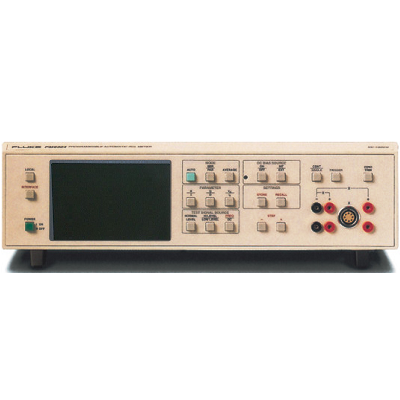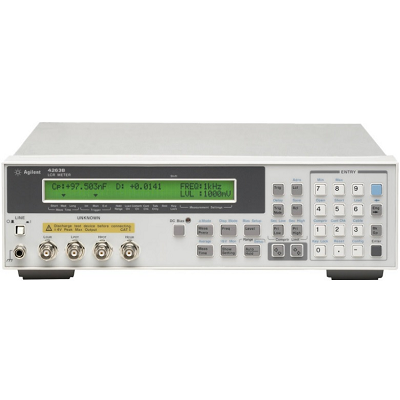LCR Meters
An LCR meter is a type of electronic test equipment used to measure the inductance (L), capacitance (C), and resistance (R) of an electronic component. In the simpler versions of this instrument the impedance was measured internally and converted for display to the corresponding capacitance or inductance value. Readings should be reasonably accurate if the capacitor or inductor device under test does not have a significant resistive component of impedance. More advanced designs measure true inductance or capacitance, as well as the equivalent series resistance of capacitors and the Q factor of inductive components. Usually the device under test (DUT) is subjected to an AC voltage source. The meter measures the voltage across and the current through the DUT. Some of the key features to look for in an LCR meter (also known as an impedance meter) are: accuracy, test frequency, measured parameters, test voltage and test current. Additionally, an easy to understand display of test results and the ability to access and use these results has become increasingly important. Component testing often requires much more than simply a resistance, capacitance or inductance value at a given test frequency and stimulus voltage. An LCR meter or impedance meter must have the flexibility to provide multi-parameters over wide frequency and voltage ranges.





